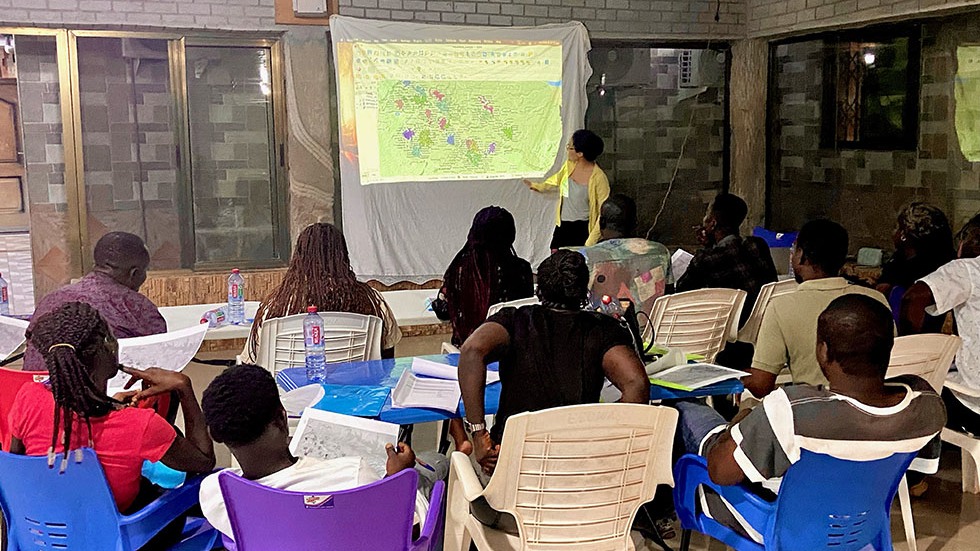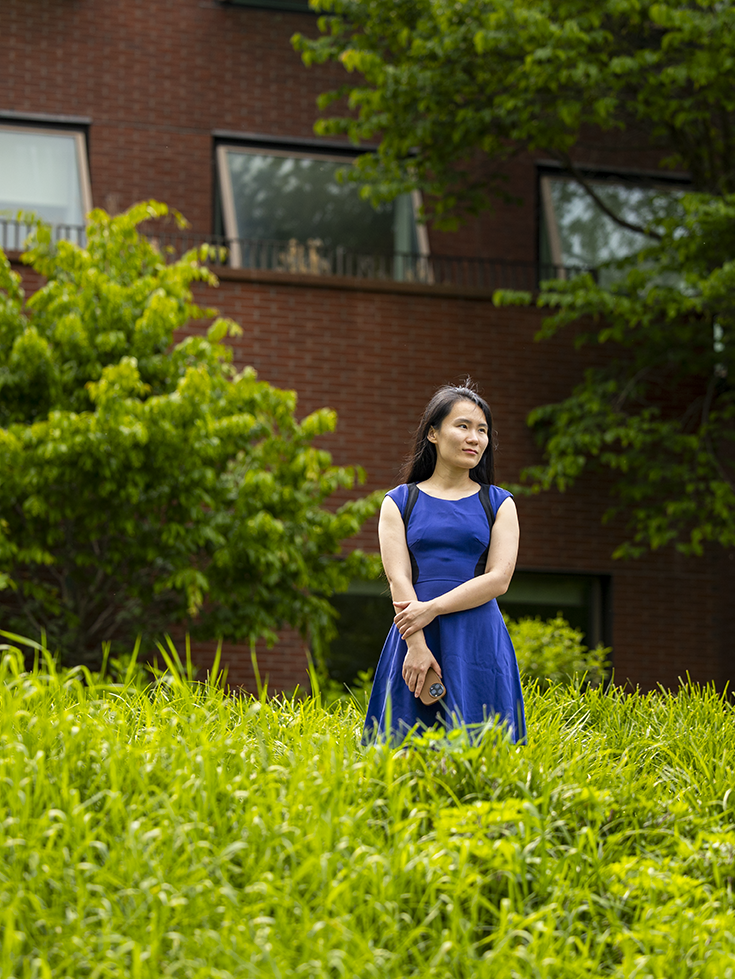Jiayue Zhang, a Ph.D. student in economics, recently returned to the U.S. after a semester conducting research in Ghana with support from Brown’s Research Mobility Fellowship and other University funding. For one part of her research, Zhang surveyed cocoa growers to learn about their first-hand experiences with climate change.
“Ghana is the second largest cocoa bean exporter in the world, so most of the chocolates we eat probably have some component from Ghana, and because it's very close to the equator, those farmers are actually at the frontier suffering from climate change risks,” Zhang said.
The third-year graduate student is using data she collected to design a subsidy program that incentivizes farmers to grow trees that can help protect against extreme hot weather caused by climate change, together with her collaborator Yunyu Shu, who is also a graduate student at Brown. For this project, Zhang and Shu also received support from a joint research initiative, Private Enterprise Development in Low-Income Countries.
She also spent a portion of her trip developing a census of small businesses in Aburi, a town near the capital city of Accra. With the data collected, the research team matches business owners with similar products and customers to see if a merger would increase profits and specialization.
Both projects will be part of Zhang’s doctoral dissertation.
Zhang said she was drawn to Brown initially because of the welcoming environment, and a willingness among faculty to share resources. She became interested in field work and development economics through a Brown Ph.D. alumna, Morgan Hardy, who is an assistant professor at NYU Abu Dhabi and helped fund Zhang’s first trip to Ghana during her second year.
As an international student from China, Zhang said she was surprised and nostalgic during her first trip to Ghana to see how similar those small communities were to her own hometown when she was growing up. Along with meeting the people of Ghana, and connecting with other researchers, Zhang said she really enjoys Ghanaian food — in particular a dish known as fufu, made of cassava, yams and plantains.
“People use a big piece of wood to pound the ingredients into a very soft cake. It involves a lot of labor. You'll see people doing that and maybe it seems like they're dancing but they're doing the work,” she said. “It’s a communal event, and the food is very, very tasty.”
Zhang said she feels her research has the potential to impact policy decisions well beyond Ghana, in countries where smallholder farmers face challenges due to climate change and small businesses face constraints to growth. Ninety percent of the businesses in Ghana are small with fewer than 10 workers, where the representative firm is just a “one-man” shop.
“The kind of questions we’re asking can help local governments to make better decisions and also help foundations to better allocate their resources,” Zhang said. “Every time I go to Ghana, when I meet with the people and learn about their needs and the environment they are coping with, I am more reassured that this work is important and meaningful.”

